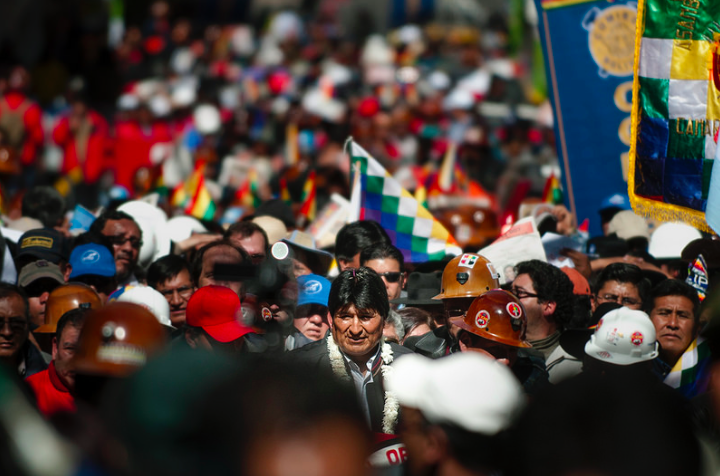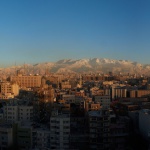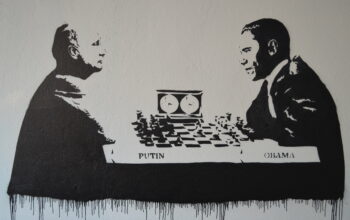Bolivia, a country once termed “ungovernable” by former president Carlos Mesa, and known for its political and economic instability, elected its first indigenous president, Evo Morales, in 2005. Morales rose to power from a political movement called the Movement for Socialism, and he recently celebrated his 11th year in office, a milestone demonstrating his long-lasting and solid popularity amongst the Bolivian people. I will look at how the institutional weakness of the Bolivian state creates a need for populist politics in order for an administration to embark on an uninterrupted program of reform with success. There is a viable connection between the historical social, cultural and economic oppression, and Morales’ rise to power with his novel type of indigenous democracy that functions as a charismatic appeal to the disgruntled, structurally excluded majority.
Populism of a weak state
The status of the Bolivian indigenous population as the marginalized political minority stands in contrast to the fact that some 44–66% of the population identify themselves as belonging to an indigenous group (depending on the source, results vary based on the wording of the ethnicity question and the available response choices).
However, despite the structural exclusion of the masses of the poor and the indigenous portions of society, and despite ingrained racism and the elites battling against indigenous cultural survival, the masses have had a significant role in populist politics in Bolivia. On several occasions in the 19th century, the state targeted indigenous communities through agrarian reforms with destructive intentions, but the indigenous population successfully resisted such attacks, forcing the government to back down on their reform programs.
This leads us to examine the function of populism in Bolivia regarding the institutional weakness of the state. Without strong institutions and consolidated democratic practices a situation is created where these weaknesses ultimately force the state to engage in political practices rooted in a direct appeal associated with populism. In essence, there needs to be a method that mobilizes the rural and poor urban masses behind a state-sponsored common goal. From this perspective, the weakness of the state and its institutional incapacity means that political survival requires an administration to successfully embark on a program of reform with a convincing ‘appeal to the people’.
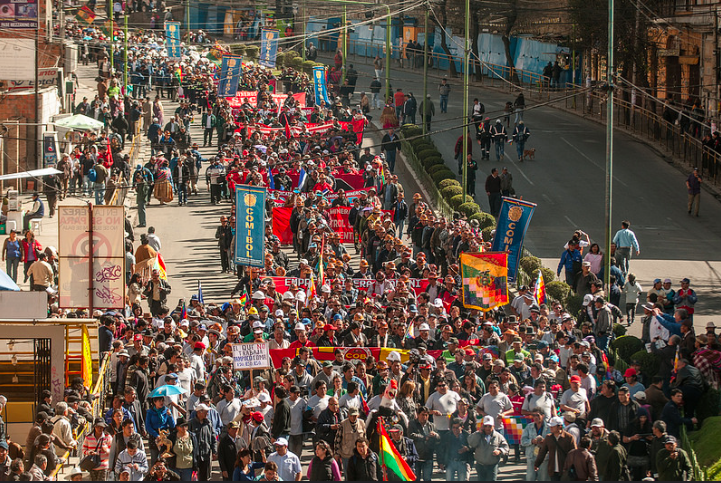
Evo politics – indigenous perspective on democracy?
Morales, who is from the Aymara indigenous group, began his political career as a leader of a coca-growers union, lobbying on behalf of the cocaleros, farmers involved in the traditional, yet internationally contested, livelihood of coca production. This made him the first president to come from the social movements that forced Bolivia’s two previous presidents from office. In fact, Morales was directly tied to the 2005 collapse of democratic institutions as the widely supported cocalero movement under his leadership paralyzed the economy with roadblocks and protest-marches, thus paving the way for Morales’s road to executive power.
Keeping in mind the above discussion on the populism of a weak state, and the required appeal to the masses, one of the most defining election promises Morales made was to govern in favor of Bolivia’s indigenous majority, who have experienced centuries of marginalization and discrimination. Along the lines of his election promises, Morales engaged in a radical push for a re-interpretation of Bolivian national identity largely through constitutional reform, in order to raise the indigenous values and identities to prominence.
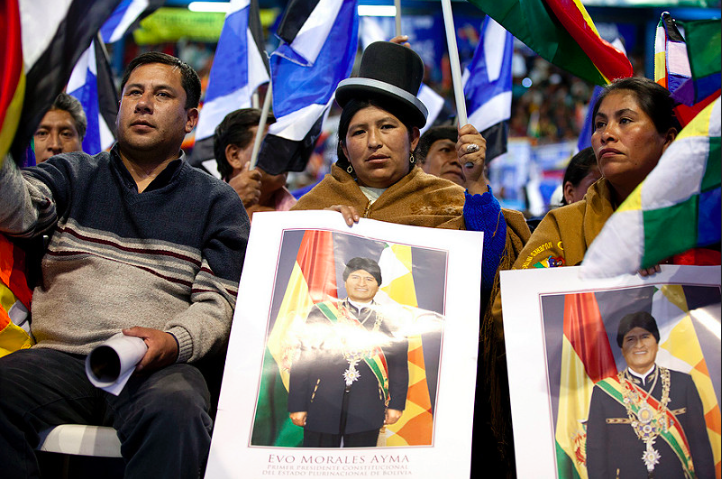
In August 2008 a referendum approved his plans for the new constitution, setting out the rights of the indigenous majority, granting them unprecedented recognition, representation, and autonomy. The new constitution also enshrines Bolivia’s controversial coca crop as national patrimony and includes unparalleled language on environmental protection, while also entirely redefining Bolivia as a “multi-ethnic and pluri-cultural” nation. These were arguably important steps in a vigorous program of decolonization that Morales’s anti-imperialist ideology supported, giving Morales evermore credibility amongst those who felt marginalized and in need of an administration that would look after their needs.
From a socio-economic perspective, one of the first and most significant moves Morales made according to his socialist focus, a few months after taking office, was to re-nationalize Bolivia’s oil and gas industries. The growth in tax revenue allowed Bolivia to extensively increase its public investment, benefitting the large portions of vulnerables in the Bolivian society. This program has reduced poverty by 25% during his government, while extreme poverty has fallen by an estimated 43% (as of 2016).
From an indigenous perspective, the protection of the environment took precedence in the vision Morales initially furthered through the new constitution in 2009. The aims of the constitution have been influenced by an indigenous Andean spiritual world-view which places the environment and the earth goddess known as the Pachamama at the centre of all life. In 2010, a law was passed that defines Mother Earth as a collective subject of public interest. The Law of the Rights of Mother Earth declares both Mother Earth and life-systems (combining human communities and ecosystems) to possess inherent rights that the human representatives are required to defend.
Additionally the law states that Mother Earth is considered sacred in the worldview of indigenous peoples and nations, once again displaying Morales’s solemn commitment to forward an indigenous perspective. Morales garnered support in many environmentalist circles and indigenous communities by propagating this environmental focus. All in all, the law is an internationally unrivalled shift from an anthropocentric perspective to a more Earth community based perspective to say that Mother Earth is of public interest.
The new constitution has also supported the inclusion of women in politics, and Bolivia’s National Assembly currently consists of more than 50% of women, having the second highest women’s representation in the world, after Rwanda. This aim for gender parity in the cabinet emanated from Evo Morales’s indigenous background: for the Aymaras and Quechuas the notion of Chacha warmi entails that female and male forces are the opposing but complementary constituents of the cosmos. For Morales, gender parity is thus a part of his decolonization program and, in his own words, a way of showing homage to his own female relatives.
In December 2009 Evo Morales was re-elected president with 64% of the vote. In 2014 he was re-elected for his third term with 61% of the popular vote, speaking of his wide support base in the marginalized majority. This points to his apparent success in making a long-lasting appeal to the masses by addressing issues critical for various portions of the society. Support within the core of the population has continued to be strong over the years, but Morales has been increasingly criticized. Some of the indigenous leaders, environmentalists and activists have argued he is becoming a sell-out: compromising with the elite establishment and shifting his policies to benefit the whiter, upper-class minority.
Ego politics – an end in sight?
The controversy around the president has been growing, getting fire from one scandal after the other: from a secret child to influence-peddling to the construction of the “Evo museum” worth 7 million dollars of taxpayers’ money.
Corresponding with these murmurs of criticism, having ruled for over a decade, a referendum was held in February 2016 on allowing Morales to run for a fourth term, and it seems he lost the vote narrowly. However, in December 2016, the leftist party, Movement for Socialism, proceeded to pick Morales as its candidate for the 2019 presidential elections, blatantly defying the results of the referendum and taking a course into unexplored terrain with uneasy reflections of authoritarianism.
Morales has argued that continuity is needed to forward the decolonization project, to redistribute wealth from nationalised resources equally to all levels of society, and to consolidate indigenous rights. Regarding his keenness to stay in power, Morales is quoted of saying: “I have to respond to the people. It is not the power of the Evo, it is the power of the people”. Only time will show if Morales’s populist appeal still resonates in the Bolivian population to the extent that a single man is allowed to lead the country for two decades (or more?). The future developments in the political landscape of Bolivia will be particularly interesting due to Bolivia’s institutional weakness, its turbulent past and the resilience of the social movements when they unite behind a common goal.
Anna Bernard
Photo 1: Evo Morales By Eneas De Troya, Attribution 2.0 Generic (CC BY 2.0); Photo 2: 2014 March of la Central Obrera Obrera by Eneas De Troya, Attribution 2.0 Generic (CC BY 2.0); Photo 3: 2013 Socialist and Indigenous Congregation By Cancillería del Ecuador, Attribution-ShareAlike 2.0 Generic (CC BY-SA 2.0)
